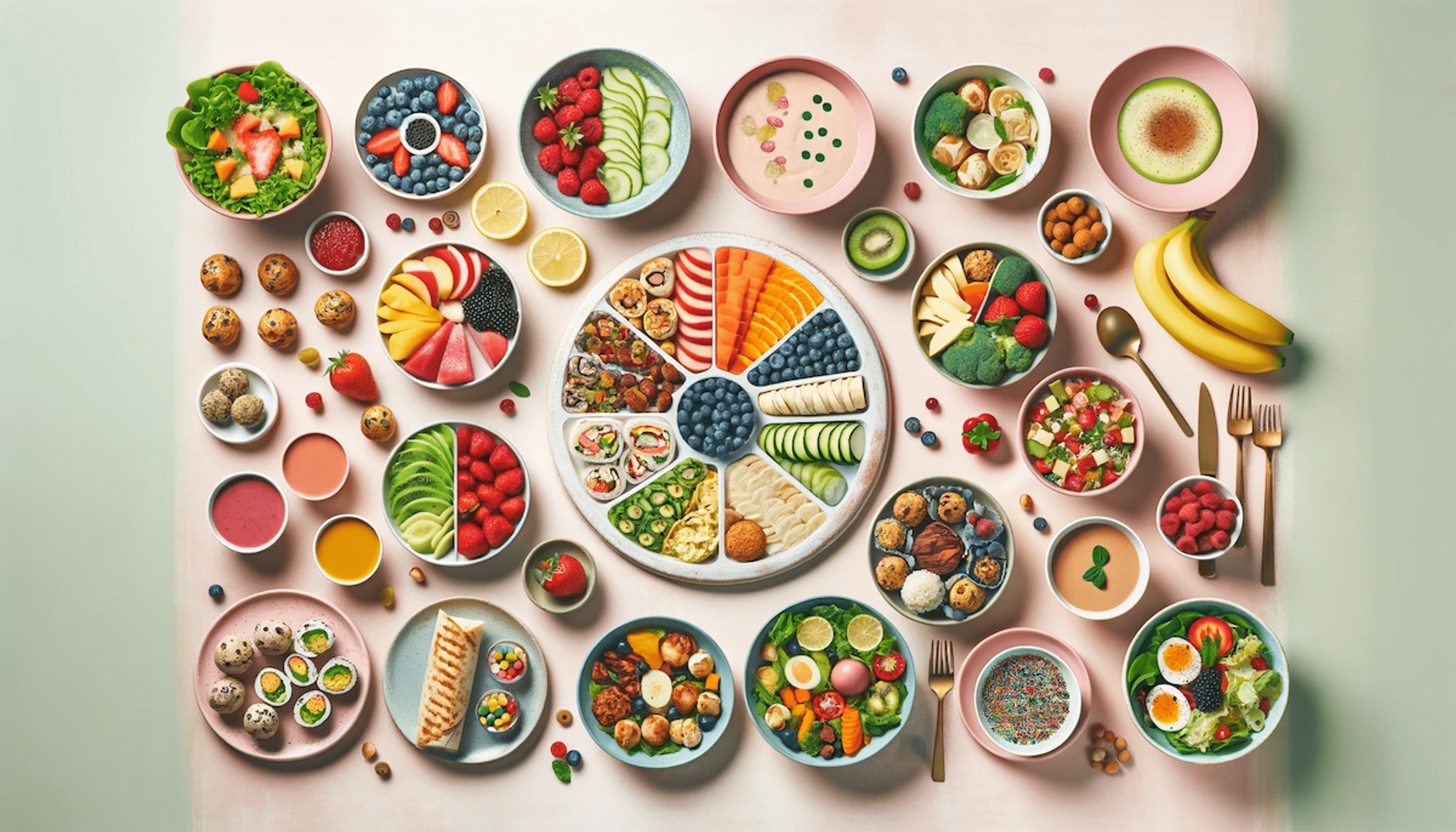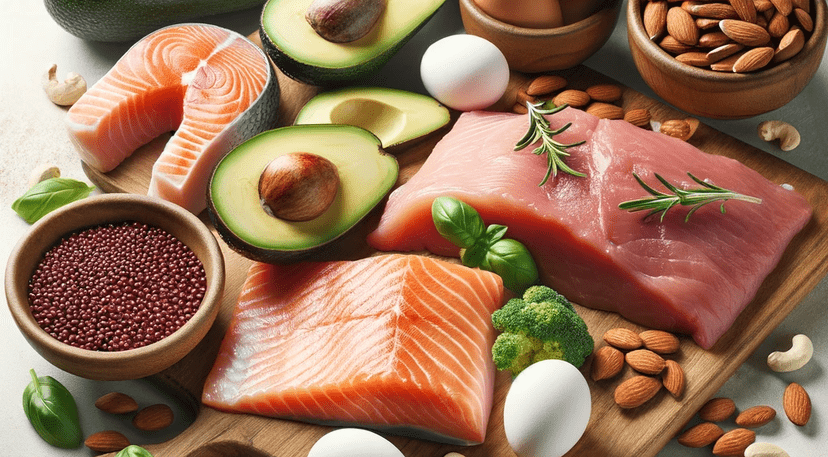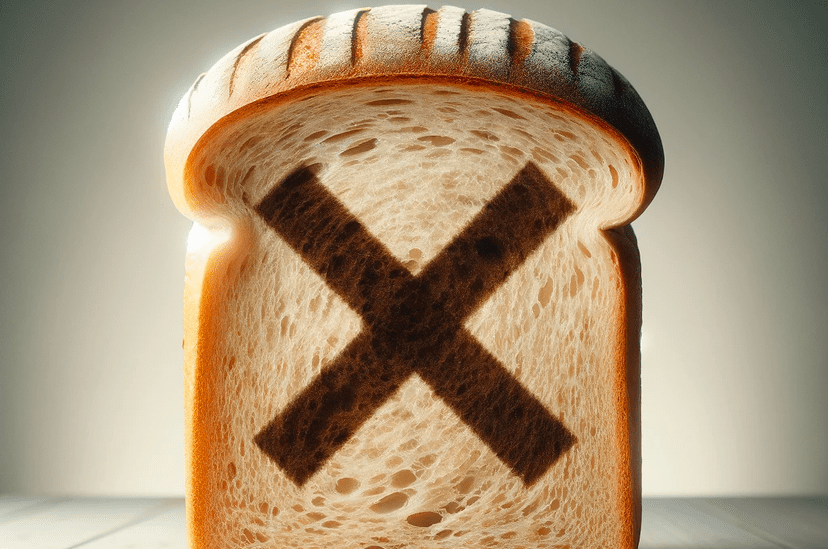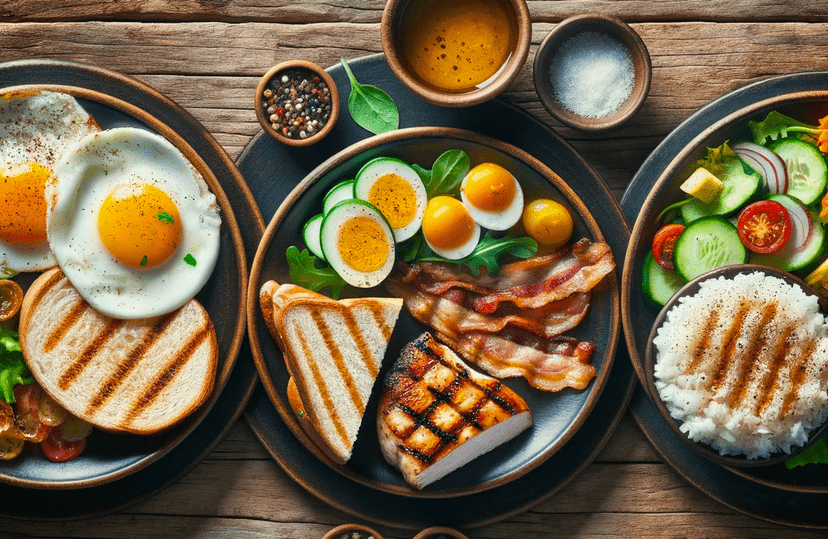How to Make a Diet Plan for Weight Loss

Understanding the Basics of Weight Loss
Weight loss is often viewed as a complex process when in fact, at its core, the principle is quite simple: you need to burn more calories than you consume. However, just because the principle is clear-cut doesn't mean the process is not without its nuances. It's crucial to gain a deeper understanding of what it takes to achieve weight loss sustainably and healthily, with special emphasis on balanced nutrition and personalized dietary needs.
Determining Your Calorie Needs
Every individual has a unique caloric requirement based on various factors like their age, sex, weight, height, and physical activity level. This is often calculated using the [Basal Metabolic Rate (BMR)](/glossary/health/basal-metabolic-rate), which is the number of calories your body needs to perform basic functions like breathing and maintaining body temperature while at rest.
Start by calculating your BMR using appropriate equations such as the Harris-Benedict Equation or the Mifflin-St. Jeor Equation. Both offer fairly accurate results, but the latter is often considered more reliable.
After determining your BMR, multiply it by your physical activity level, which ranges from sedentary to extra active. This total gives you the number of calories you need to maintain your current weight. To lose weight, you'll need to create a calorie deficit, either by consuming fewer calories or increasing physical activity.
Importance of Balanced Nutrition
Obtaining your calories from a variety of food sources is essential for providing your body with the nutrients it needs. Relying on a single type of food or drastically reducing calorie intake can lead to nutritional deficiencies and health problems.
Protein, carbohydrates, and fats are the three main macronutrients your body needs. Aim for a diet rich in lean proteins like fish and chicken, complex carbohydrates such as whole grains and fruits, and healthy fats found in avocados and nuts.
Vitamins and minerals, referred to as micronutrients, are also paramount. These can be found in a wide range of foods, but are particularly abundant in vegetables, fruits and lean meat.
Remember, while tracking your calorie intake, it's equally important to ensure those calories are where nutritional value.
Setting Realistic Weight Loss Goals
Losing a massive amount of weight in a short period may seem appealing, but it's rarely sustainable or healthy. Aim for a modest weight loss of 1 to 2 pounds a week. This slow and steady approach is not only more manageble, but also increases your chances of keeping the weight off long-term. Discover a way of eating you can live with for the long term that makes you feel satisfied without feeling deprived.
Importantly, revisit and adjust your goals as necessary. Weight loss is not always linear, and it's perfectly normal to experience plateaus and fluctuations, so don’t get too caught up with the numbers on the scale.
At the center of your weight loss journey should be a commitment to overall health, not just a lower number on the scale. Ensuring your diet plan is balanced, personalized, and sustainable is integral to achieving and maintaining your health goals.
Designing Your Diet Plan
When it comes to effective weight loss, a well-designed diet plan that reflects your unique lifestyle, food preferences, and weight loss goals is instrumental. A good diet plan caters to your nutritional needs while helping you shed unwanted pounds. It doesn't only entail choosing the food you eat but involves creating a meal plan, understanding portion sizes, and incorporating variety in your diet.
Creating a Meal Plan
Creating a meal plan requires careful thought and consideration. Firstly, you need to identify your daily caloric needs based on your current weight, activity level, and weight loss goals. After determining the number of calories you need per day, start crafting your meal plan by selecting healthy food options that stay within these limits.
Remember that each meal should include a balance of protein, carbohydrates, and fats. High-fiber foods are particularly beneficial for weight loss as they may help reduce hunger and decrease calorie absorption from other foods. It's important to plan your meals ahead of time, ideally for the entire week. This allows you to control what you eat and avoid making impulsive food choices.
Understanding Portion Sizes
While knowing what to eat is crucial, understanding portion sizes is equally important. Even if you're eating healthy, consuming overly large portions can lead to weight gain. A simple strategy to control portion sizes is using smaller plates and bowls. We often tend to fill our plates, so using a smaller one can trick your brain into eating less while still feeling satisfied.
Keep in mind the 'plate method' where half of your plate should be filled with vegetables or fruits, a quarter with lean protein, and another quarter with whole grains. This method helps ensure you are getting proper portion sizes of different food types for a balanced diet.
Incorporating Variety In Your Diet
Incorporating a variety of foods in your diet is critical to cover all nutritional bases and prevent diet fatigue. Aim to include foods from different food groups, switch between different types of proteins, carbohydrates, and fats, and try to include a variety of colors on your plate to ensure you are getting a wide range of nutrients.
Remember to include healthy fats from sources like avocados, nuts, and oily fish, and complex carbohydrates from whole grains, vegetables and fruits. Experimenting with herbs and spices can also bring a new flavor dimension to your dishes, reducing the need for high-calorie sauces and dressings.
Remember, a successful diet plan is one that is well-balanced and sustainable. It acknowledges the importance of nutritional adequacy, portion control, meal planning, and variety. Focus on long-term healthy eating habits, rather than restrictive short-term diets, for lasting, healthy weight loss.
Maintaining Your Diet and Managing Challenges
Maintaining a diet, especially in the long run, is a challenge for many people. Before we dive into this challenge, it's important to understand that a diet plan is more than just a guide to help you lose weight. It's a change in your lifestyle, a commitment to making healthier food decisions consistently.
Dealing with Cravings and Temptations
One of the biggest battles anyone encounters while on a diet is dealing with cravings and temptations. The key to resisting these temptations is understanding the triggers and developing coping mechanisms:
- Learning to distinguish between hunger and cravings: Hunger is a physiological response while cravings are usually influenced by psychological factors like stress, boredom, or habit.
- Prioritising balanced meals: An adequate intake of proteins, healthy fats, and fibres can reduce cravings because they keep you satisfied for longer.
- Drinking enough water: Sometimes thirst can be mistaken for hunger. Hydration can keep these false alarms at bay.
Another effective strategy is to allow for occasional indulgences in controlled portions. This can prevent feelings of deprivation which often lead to binge eating.
Keeping Motivated
Staying motivated in your weight loss journey is crucial. It's not just about reaching your weight goal but also making sure you maintain it. Here are some strategies to keep you encouraged:
- Use a food diary: Keeping track of what you eat can make you more aware of your eating habits and motivate you to keep making healthy choices.
- Celebrate the small victories: Don't wait until you've reached your end goal to be proud of yourself. Celebrating small successes along the way can boost your confidence and motivation.
- Find a diet buddy: Going on a diet journey with a friend can make the process less lonely and more enjoyable. You can support each other during challenging times.
Remember, setbacks are normal and not a reason to give up. Treat them as learning experiences rather than failures.
Adapting Your Diet Plan Over Time
Finally, the diet plan you start with should not be fixed. As your body changes over time, your nutritional needs will differ, so adapting your diet plan over time is necessary. Regular re-evaluation helps you to adjust your plan according to your body's response. It ensures that you're not stuck in a rut and your diet continues to serve your changing needs. Your changing needs could be due to factors like age, physical activity levels, or changes in health status.
Instead of striving for perfection, aim for progress. Instead of a rigid diet plan that makes you feel trapped, develop a flexible, adaptable lifestyle that you feel comfortable with your diet plan. This will lead to sustainable weight management and overall improved health.
In conclusion, maintaining a diet and managing the challenges that come with it requires a comprehensive understanding of your body and its needs. Combine that with patience, persistence, and positive mindset, and you'll be on your way to a healthier you in no time.
In Summary
To recap this comprehensive guide on weight loss, it's important to remember that sustainable and healthy weight loss is not about drastic dieting measures but about total lifestyle changes centered on balanced nutrition and personalized dietary needs.
Key steps include:
-
Determining your calorie needs: This is based on your unique factors such as age, sex, weight, height, and level of physical activity. Creating a caloric deficit by consuming fewer calories than you burn is the basic principle behind weight loss.
-
Eating a balanced, nutritious diet: Your diet should consist of a variety of foods providing vital macro and micronutrients. Protein, carbohydrates, and fats are essential macronutrients, while vitamins and minerals fulfill your micronutrient needs.
-
Setting realistic weight loss goals: Aiming for a modest weight loss of 1-2 pounds per week is healthier and more sustainable in the long term.
-
**Designing an individualized diet plan
:** This involves creating a meal plan, understanding portion sizes, and incorporating variety in your diet.
- Maintaining your diet and managing challenges, including dealing with cravings and temptations, keeping motivated, and adapting your diet plan over time.
To implement these points, here are some action steps to kick start your journey towards healthier and sustainable weight loss:
-
Calculate your caloric needs: Use equations like the Harris-Benedict Equation or Mifflin-St Jeor Equation to calculate your Basal Metabolic Rate (BMR). Multiply by your physical activity level to determine total calorie needs.
-
Create a balanced meal plan: Balance your meals with essential macronutrients and micronutrients. Distribute your daily caloric needs across meals that include lean proteins, whole grains, fruits, and healthy fats.
-
Understand portion sizes: Use methods like the 'plate method' for portion control.
-
Set realistic weight loss goals: Set achievable weight loss targets to keep yourself motivated. Remember, slower, steady weight losses are more likely to stay off.
-
Keep track of your progress and stay motivated: Use tools like a food diary, celebrate small victories, and engage a 'diet buddy' for support.
-
Be mindful of cravings and develop coping mechanisms: Learn to identify hunger vs cravings, stay hydrated, and allow for occasional controlled indulgences.
-
Reevaluate and adapt your diet plan regularly as needed: Regularly check if the plan still fits your changing nutritional needs.
Remember, weight loss is not a sprint, but a marathon. It demands patience, consistency, and a positive mindset. By focusing on total wellness instead of mere numbers on the scale, you can embark on a journey towards sustainable weight management and overall improved health.
![Does a 400 and 600 Calorie Diet Plan Help Weight Loss?[ANSWERED]](https://img.imageboss.me/onestep/width/828/format:auto,quality:80/assets/site/blog/does-a-400-and-600-calorie-diet-plan-help-weight-loss.png)
![How Many Calories Does 10,000 Steps Burn? [ANSWERED]](https://img.imageboss.me/onestep/width/828/format:auto,quality:80/assets/site/blog/how-many-calories-does-10000-steps-burn.png)









